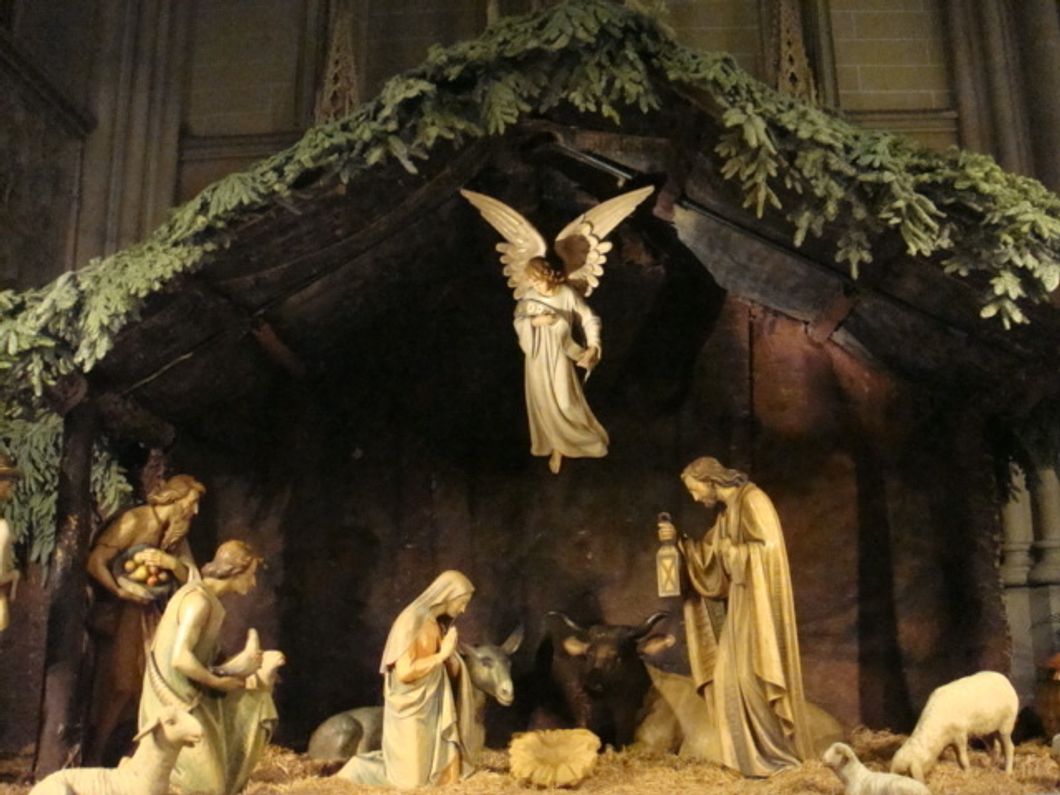As we are in the midst of the Christmas season, I like to look at the various prophecies that were made about Jesus. The prophecies were made not only about His birth, but His death as well.
Prophecy is a little different than prediction. According to Webster's Dictionary, one of the definitions of prophecy is the inspired declaration of divine will and purpose. Prediction, however, is what we see in our daily lives. Meteorologists predict the weather, and we sometimes get upset when their prediction of snow turns out to be just rain or even sunshine. We also make predictions about sports, including football games (and I am far from accurate at predicting these, as I got about 55% correct on the guesses I made throughout the college football season on ESPN's Pick 'em game).
I think of prophecy as being shown the future. Prophets had been made known throughout the Old Testament that a Savior was coming to save God's people from their sins, and allow them to have that bridge back to God's table. As we looked at in last week's article, without Jesus's sacrifice, we would not be able to be in the presence of God, because God does not allow sin in His presence.
There are several prophecies made about Jesus throughout the Old Testament, and we can also see the lineage of Jesus in Matthew 1:1-16, as well as Luke 3:23-38. However, a couple of the Old Testament prophecies that we will look at will be found in the books of Isaiah and Jeremiah.
First, the virgin birth was predicted in Isaiah 7:14. which says, "Therefore, the Lord Himself will give you a sign: See, the virgin will conceive, have a son, and name Him Immanuel (CSB)." This prophecy shows us that Mary would give birth to Jesus, which came to pass, and we can see this in each of the Gospels of the New Testament. What this prophecy means is that, because Mary was a virgin, as we read in the New Testament, Jesus was sent by God, which goes back to last week's point of Jesus coming for our salvation.
Jesus came as God in flesh, so that He could know our struggles with temptation and emotions. The name Immanuel mentioned in this prophecy means God with us. Jesus came so that God could always be with us. We also must realize that if Jesus had been conceived through relations between Mary and Joseph, He would not have been able to be the ultimate Lamb of God because He would have been born into sin naturally, rather than of God.
Another prophecy we see fulfilled is found in Jeremiah 23:5-6, which says, "'Look, the days are coming,'- this is the Lord's declaration- 'when I will rise up a Righteous Branch for David. He will reign wisely as a king and administer justice and righteousness in the land. In His days Judah will be saved, and Israel will dwell securely. This is the name He will be called: The Lord Is Our Righteousness (CSB).'"
This prophecy is also fulfilled by Jesus's birth. Joseph, who was Jesus's earthly father because of his marriage to Mary, was a descendant of King David, just as Jeremiah prophesied. Throughout Jeremiah's prophecy, we see many things that were fulfilled throughout Jesus's life. Through His righteousness, we are able to come back and dine at God's table, as was mentioned in the last article.
So what does this mean for us? This means that all the prophecies throughout the Bible are true. This means that the Bible is more than just a history book with cool stories; it's a road map that leads us to God's kingdom. There are prophecies made throughout the Old and New Testaments that are coming to pass even today!
So, while meteorologists may not always get the weather forecasts completely accurate, nor can I accurately guess who will a football game, God's word and each prophecy made in it is always accurate.

















